Advancing Professional Practice: Professional Identity and Challenges
VerifiedAdded on 2023/06/10
|5
|1019
|265
Homework Assignment
AI Summary
This assignment delves into the concept of professional identity, examining how individual self-perception is shaped by experiences, beliefs, and values within a specific occupation. It addresses challenges faced by professionals in human service organizations, such as fear of risk, increased complexities, and feelings of powerlessness, providing detailed explanations of these issues. The assignment includes an example from the Jacobite Syrian Orthodox Church, outlining specific challenges related to language barriers, church divisions, inter-religious marriages, and the integration of modern technology. The paper references several sources to support the arguments and analysis presented. The assignment emphasizes the tensions between value-based professional practice and economically and technically focused organizations, and highlights the need to continually develop knowledge and practice within this changing and complex context. This assignment is available on Desklib, a platform offering various AI-based study tools.
1 out of 5
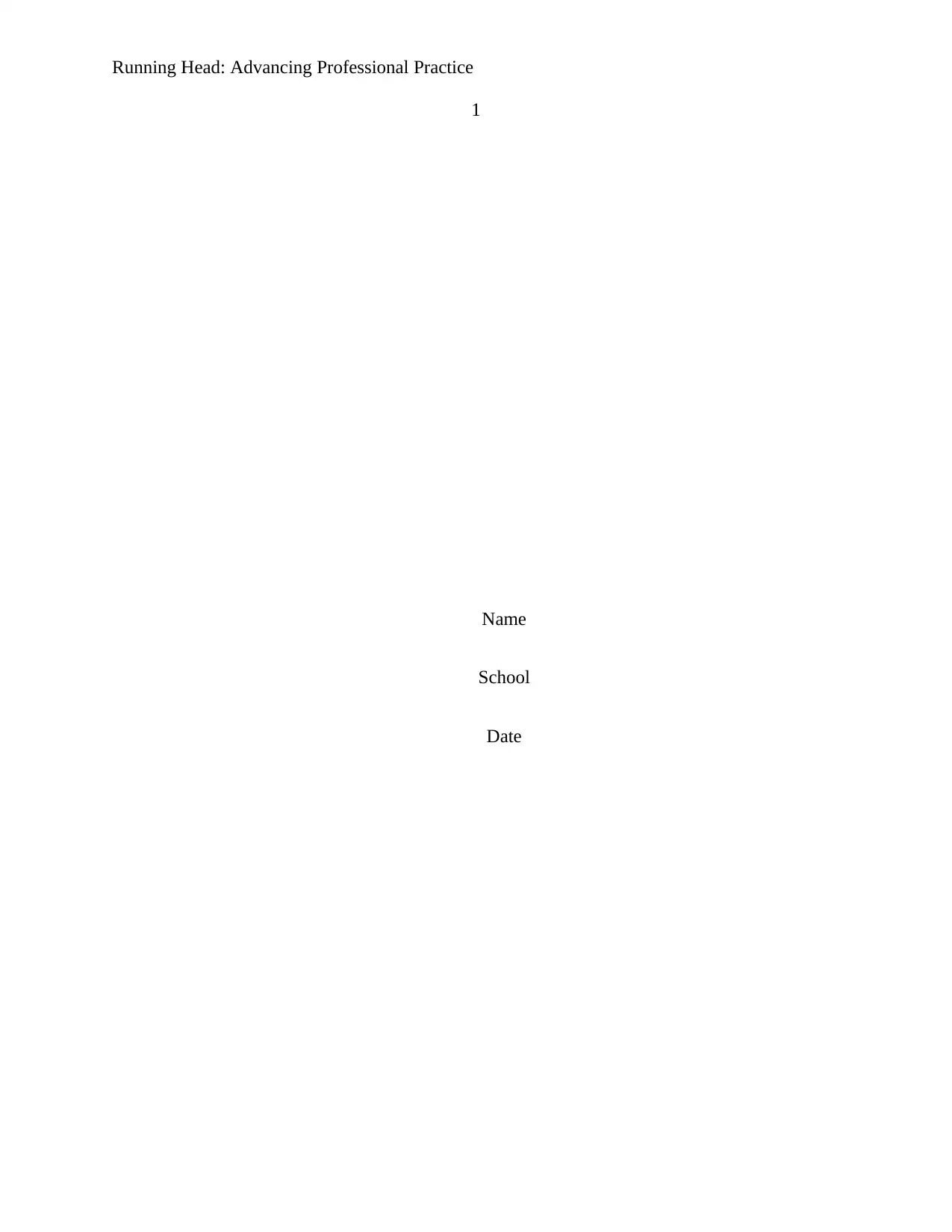
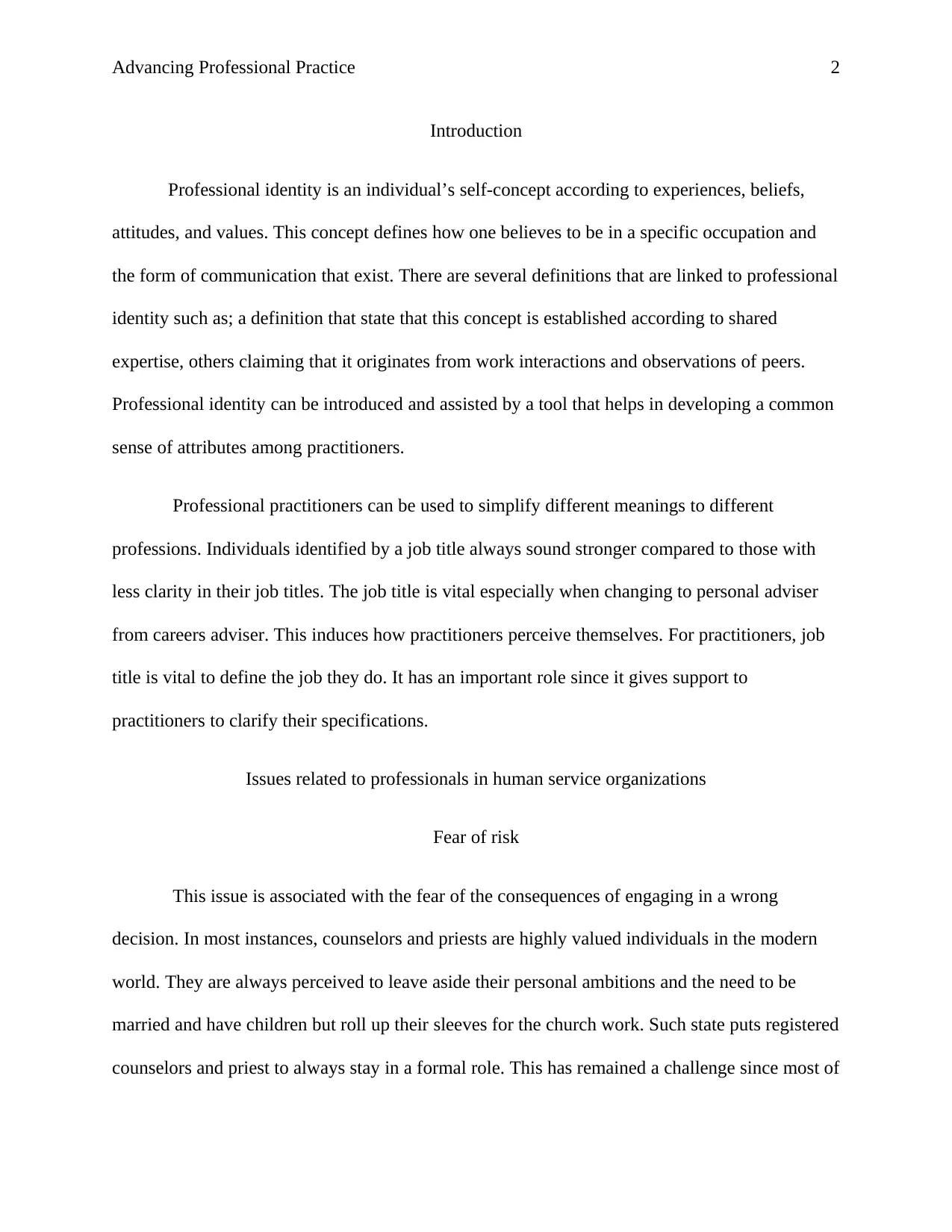
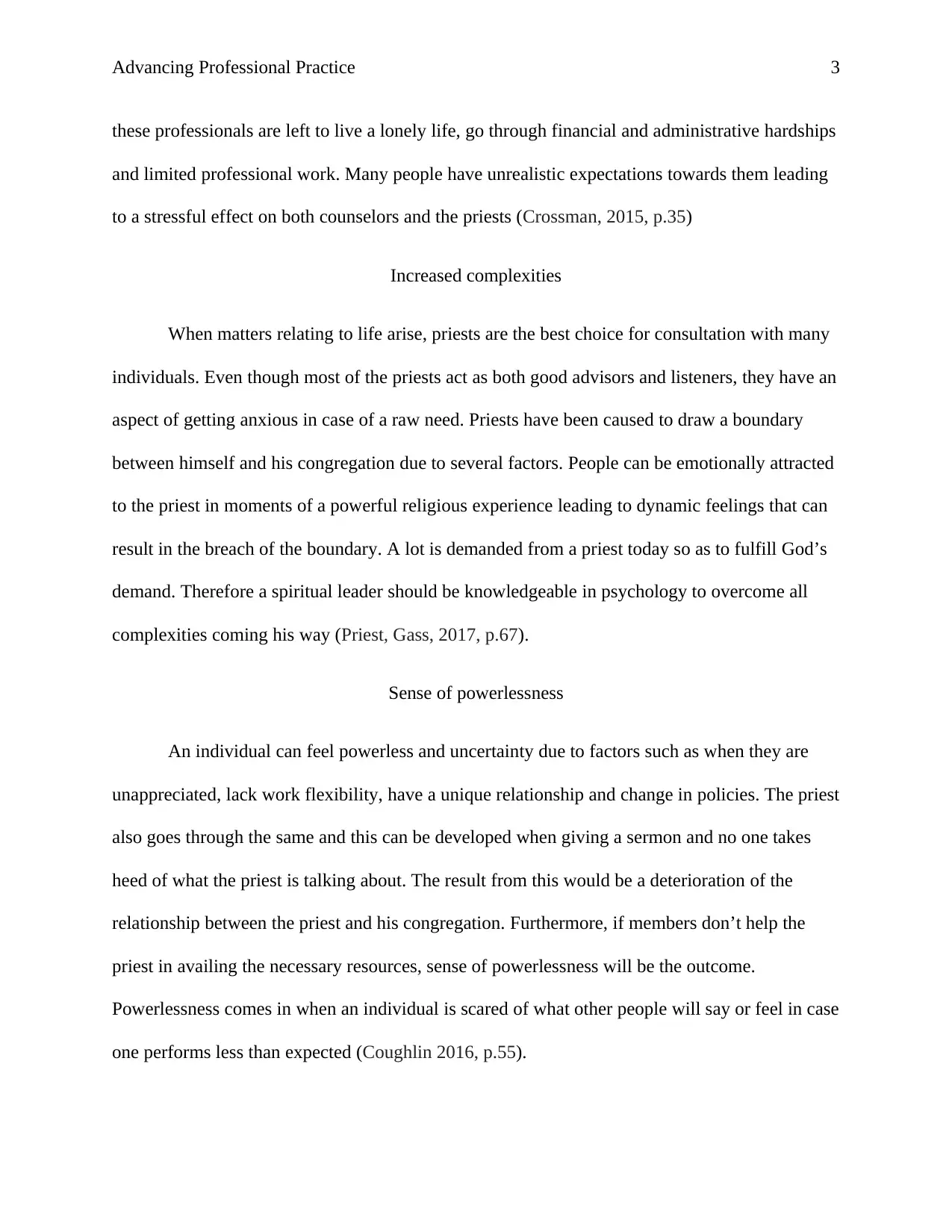

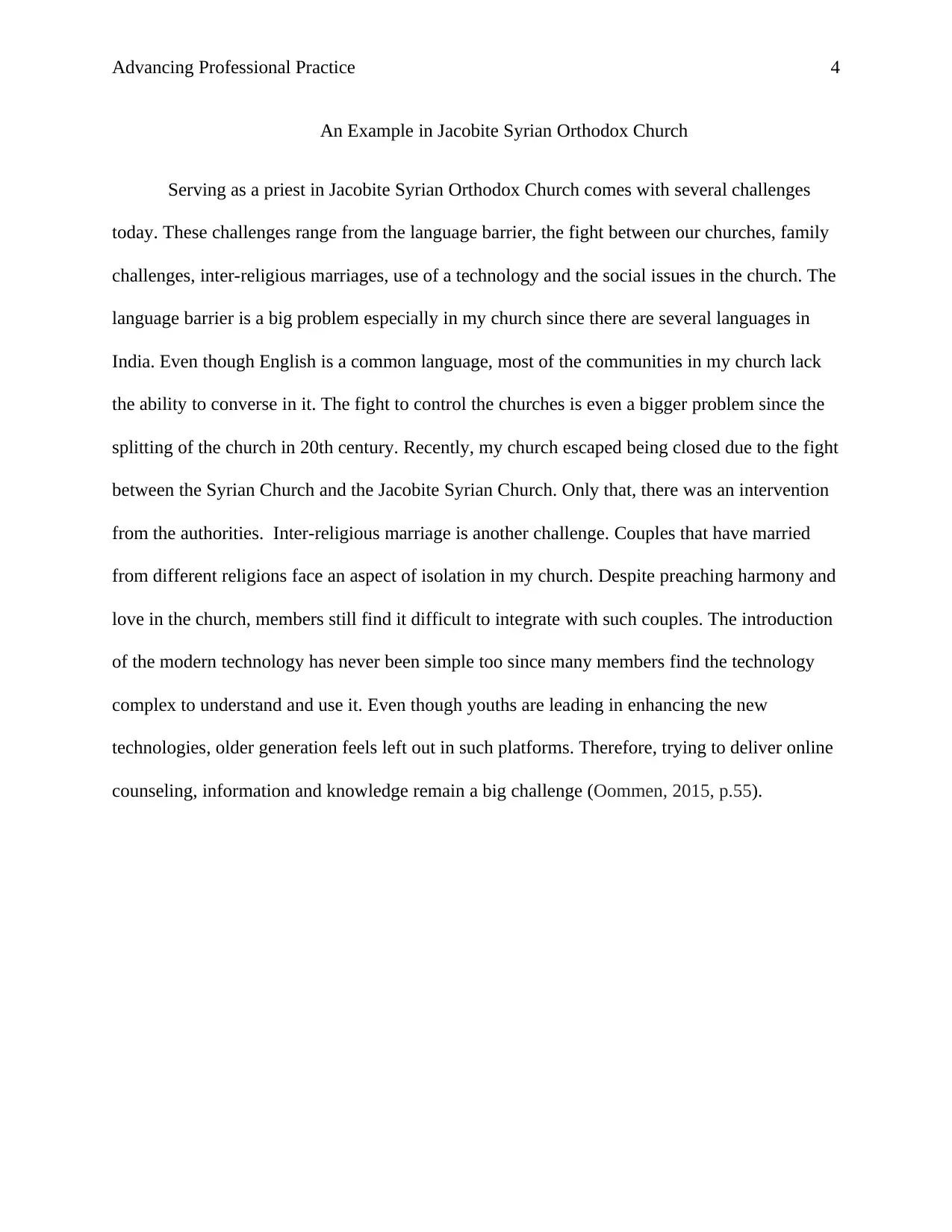
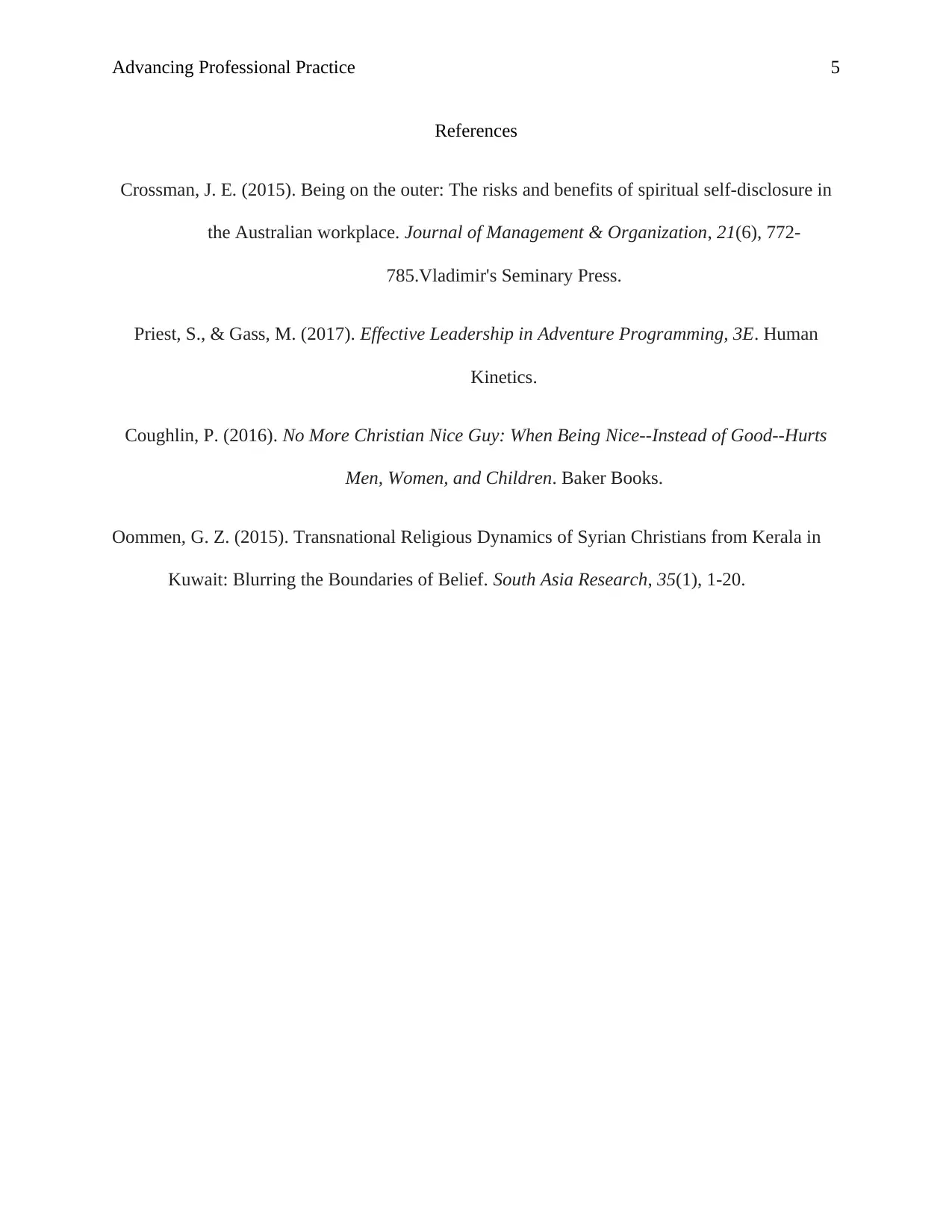

![[object Object]](/_next/static/media/star-bottom.7253800d.svg)